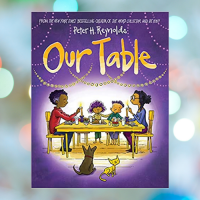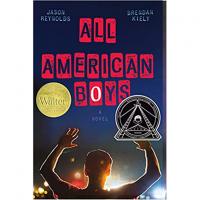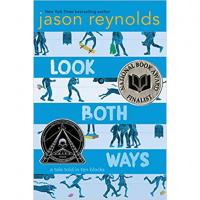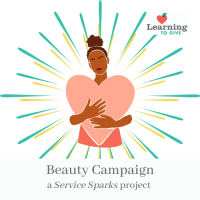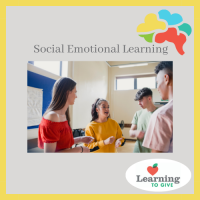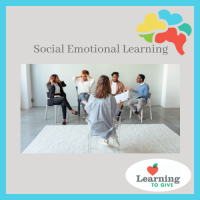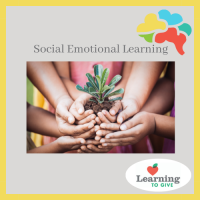In this book, Peter Reynolds writes a fable about what happens to one family’s table when life’s distractions get in the way of their time together. Violet remembers when her family gathered at the table to share stories and make memories. When the table disappears, Violet decides to act and...
Written by two award-winning authors, "All American Boys" shares the alternating voices of two students, one black and one white, after Rashad was beaten by a police officer and Quinn saw it happen. The narrative reveals different experiences and perspectives of diverse kids when the incident...
This is a story that takes place in one day from ten different perspectives. In the ten blocks around the school as it lets out one day, we meet kids and learn who are they when there are no adults listening in. The book shows we are all connected, and through even the smallest interactions...
A Simple Safe Service project from home: Give food as a gift to express care and love or donate food to community members and local nonprofits. Food has always been a gift we give from our hearts. When we visit family, friends, or community members, we often bring gifts of food, which is an expression of our time and talent - a one-of-a-kind gift. Whether we bring cookies to an elderly neighbor or donate canned goods to a shelter, food is a fundamental need and the first thing we think of in a crisis.
This book by poet and activist Amanda Gorman sings with optimism for our personal power to make a difference for a better world. It is a celebration of change through grace and vision. In this "children's anthem," Gorman inspires us to act with our personal gifts while collectively being the best we can be. With images of famous people and musical instruments, the artist illustrates the beauty of individuals of diverse backgrounds coming together as one in community. Amanda Gorman is an African American youth poet laureate, born with a speech impediment and sensitivity to sound, who is now speaking eloquently with hope that we can all take action for a better world.
Ignite meaningful action that lights up the world through "Service Sparks" youth projects! Young people explore the idea that beauty is defined by the things that make us unique, resilient, powerful, and thoughtful of others. Collect many ideas together and share a message of empowerment to impact the culture of negative body image.
After a meaningful session or day together, a reflective writing prompt can help young people internalize, sort, or articulate their thoughts and feelings. A great tool for SEL and personal reflection, exit tickets provide a prompt to bring thoughts to a close before moving out the door. Designed to be handed to the facilitator as a "ticket" out the door, they may also be kept private if someone doesn't want to share their thoughts in the moment.
One of the most effective ways to support youth social emotional growth is with regular check-ins. Use ice breakers to give youth a chance to listen, talk, reflect, build empathy, and discuss critical thinking and issues. The following conversation prompts are organized by the SEL categories and the type of engagement they bring out.
This activity prompts young people to think and speak critically with their peers about a real-world topic. They consider how the topic applies to them and how it might impact others. During this activity, youth share their opinions, debate their positions, and sometimes even change sides as their opinions shift to accommodate new information or other viewpoints. This activity introduces young people to the concepts of bias and stereotypes by discussing how the judgments we make can be very damaging.
Young people create a Public Service Announcement in order to inform people about an issue and challenge them to take action in order to make a difference. This activity guides them to select an issue, research ways to address the issue, and make a call to action.
